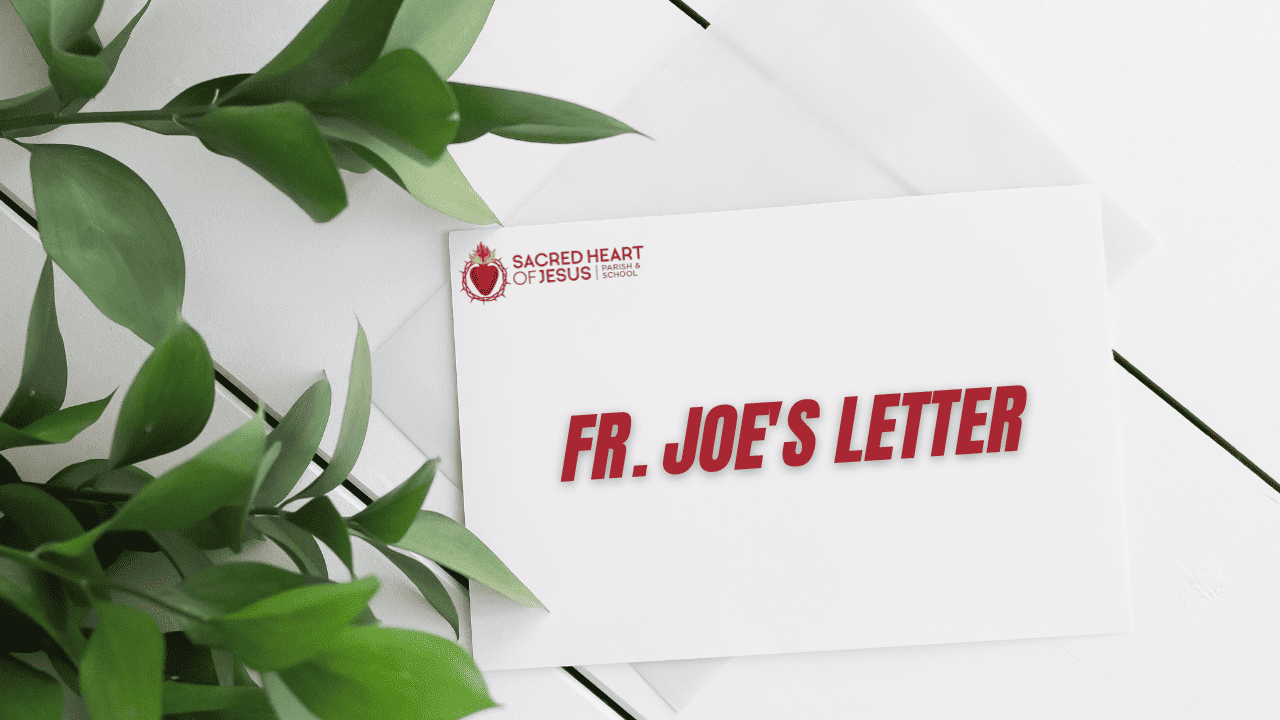This past week was Natural Family Planning Awareness Week. It is very important for all of us to have some knowledge and awareness of NFP and what the Church teaches on this topic in the context of married life and love. A little bit of knowledge can go a long way in countering what we hear in the world today concerning love and marriage, which a lot is heard subconsciously. We have been hearing about love and marriage all our lives in the context of movies, television, novels, and the internet. These sources of information seem to tell us that our sexuality is more about feeling than thought. The world has been telling us for decades that if it feels good then do it and it’s all okay. The Church teaches us to act responsibly, and love is to be freely given and freely received. Love and the expression of love cannot be forced or demanded from someone. It is modeled after God’s love for us. He freely loves us and asks that we use our free will to love Him in return. Along with this great gift of love comes a great responsibility and that responsibility must be exercised with great care and concern for others. There is always a great challenge in following the ways of the Lord rather than the world’s or our own. It may not be easy to follow the Lord’s way, but it will bring us much peace and happiness both in this life and in the next.
Listen to what St. John Paul II wrote in 1989, “I hope that everyone will benefit from a closer study of the Church’s teaching on the truth of the act of love in which spouses become sharers in God’s creative action. The truth of this act stems from its being an expression of the spouses’ reciprocal personal giving, a giving that can only be total since the person is one and indivisible. In the act that expresses their love, spouses are called to make a reciprocal gift of themselves to each other in the totality of their person: nothing that is part of their being can be excluded from this gift. This is the reason for the intrinsic unlawfulness of contraception: it introduces a substantial limitation into this reciprocal giving, breaking that “inseparable connection” between the two meanings of the conjugal act, the unitive and the procreative, which, as St. Paul VI pointed out, are written by God himself into the nature of the human being (HV, no. 12).
It is not uncommon in current thinking for the natural methods of fertility regulation to be separated from their proper ethical dimension and to be considered in their merely functional aspect. It is not surprising then that people no longer perceive the profound difference between these and the artificial methods. As a result, they go so far as to speak of them as if they were another form of contraception. But this is certainly not the way they should be viewed or applied. On the contrary, it is only in the logic of the reciprocal gift between man and woman that the natural regulation of fertility can be correctly understood and authentically lived as the proper expression of a real and mutual communion of love and life. It is worth repeating here that “the person can never be considered as a means to an end, above all never a means of ‘pleasure.’ The person is and must be nothing other than the end of every act. Only then does the action correspond to the true dignity of the person.” (cf. Letter to Families, no. 12)
In today’s bulletin you will find an article concerning the great importance of Natural Family Planning. Please take the time to read them and share them with family and friends. This is the truth that we must be willing to share with our young people for their sake and that of future generations.
The National Eucharistic Congress convened in Indianapolis July 17 to July 21. This gathering of the faithful drew over 50,000 people and is a part of the three-year Eucharistic Revival begun by the United States Bishops Conference. This revival is meant to deepen and enhance our belief in the Eucharist and our devotion to Real Presence of Jesus in the Blessed Sacrament. We are very blessed to have Perpetual Adoration of the Blessed Sacrament in our parish. This means that the Blessed Sacrament is exposed in our Chapel of Divine Mercy 24/7 for anyone to come to pray in the presence of this gift. Praying in front of the Blessed Sacrament is the best way to pray to our Lord outside of Mass. Eucharistic Adoration offers us so much by way of comforting and strengthening us in our times of need. It is also an important and powerful way to deepen our relationship with the Lord in our lives. The more time we can spend with the Lord the more we can become aware of His love and presence in our lives. This helps us to live each day in the Lord’s presence thus helping us to make choices in our daily lives that reflect His love for the people around us.
In today’s Gospel and for the next five weeks we will read from the John 6 which is also called the Bread of Life Discourse. This is the central teaching on the Eucharist found in the Gospel of St. John. It may be a good idea to read this chapter of St. John’s Gospel to prepare our minds and hearts for the next four weeks.


